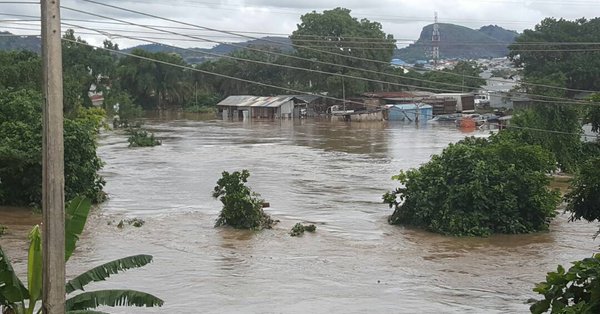At a daylong a forum held in Abuja on Thursday, August 16, 2018, the National Emergency Management Agency (NEMA) and a group of stakeholders sought to devise strategise on best ways to prevent and mitigate climate-induced disasters in the country.

Mr Mustapha Maihaja, Director-General, NEMA, said that the National Stakeholders Workshop aimed at improving the mitigation and response mechanism in the country.
He described the event as relevant, considering past experiences of unprecedented natural and human disasters that have been affecting collective resilience of Nigerians.
“This national workshop is among the steps necessary to collectively prepare and strategise to reduce climate induced disasters in our country.
“As part of our collective responsibilities as servants of the people, Ministries, Departments and Agencies (MDAs) need to always come together with a view to restrategising plan of actions.
“Towards safeguarding and protecting our citizens, infrastructure and other elements that are vulnerable in the environment.
“The impact of disasters on lives, properties and environment depends on the Country’s level of preparedness.
“Which to a large extent relies on effective early warning systems that in turn drives all processes constituting our early action mechanisms,’’ Maihaja said.
Maihaja said that, in line with the paradigm shift to Disaster Risk Reduction, NEMA was preparing to also map out vulnerable communities based on the prediction as indicated by climate risk monitoring agencies.
He explained that it was a way to enhance and direct enlightenment campaigns in critical states.
The director-general said that the new approach will pay off positively if the submissions of the Technical Committee are adhered to and the resolutions taken to the target population.
Maihaja said that NEMA as a coordinating agency collaborated with relevant stakeholders to put together in a simplified manner the disaster implications of the Annual Flood Outlook (AFO) and the Seasonal Rainfall Prediction (SRP).
He said that the documents were put together to remind stakeholders of their roles when it comes to risk mitigation, preparedness and response.
Maihaja said that the media also played a key role is creating awareness to those in the grassroots to increase their preparedness.
Also speaking, Mr Idris Abbas, Director-General, FCT Emergency Management Agency (FEMA), said that the workshop was apt and the most desired to boost emergency response and most especially, Disaster Risk Reduction
Abbas said that preparedness was one of the key ingredients of disaster management and effective response.
Abbas said that the National Emergency Centre established by the National Communications Commission is fully functional now and the 112-emergency number was also fully functional in the FCT.
He said that the innovation would really enhance response in addition to what the army and Road Safety were doing.
“When all the agencies on preparedness have done their own, like the NHISA and the NiMet, it would now be for the response agencies to sit down and articulate their response plans in other to respond properly.
“The workshop is very apt, and I commended NEMA for the gigantic step and I want to assure that we would give our best joining their course’’, Abbas said.
In his remarks, Mr Clement Eze, a representative of the Nigeria Hydrological Services Agency (NHISA), lauded NEMA for always creating the platform for stakeholders to brainstorm on enhancing the safety of the country.
He said that when it comes to emergency issues, NHISA, was at the upstream sector of predicting flood and informing the relevant agencies and the public on the next step to take.
Eze said that flood has been the major form of natural disaster in the world including Nigeria.
He said that before the onset rainy season, NHISA had warned various states and communities that were likely to be affected by flood.
By Lizzy Okoji
